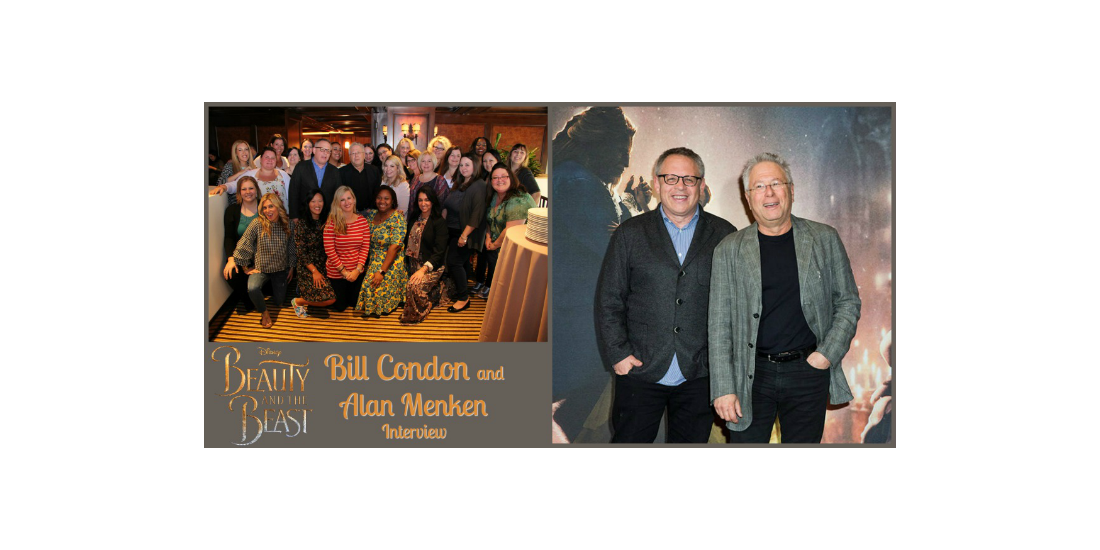
What do Bill Condon and Alan Menken have in common besides Disney’s live-action Beauty and the Beast? Academy Awards, well yes, that is something else. These men alone are so brilliant, but together, they are magical. Beauty and the Beast is such a gorgeous film and the credit goes to the direction and music for sure.
Bill Condon and Alan Menken
Beauty and the Beast Interview
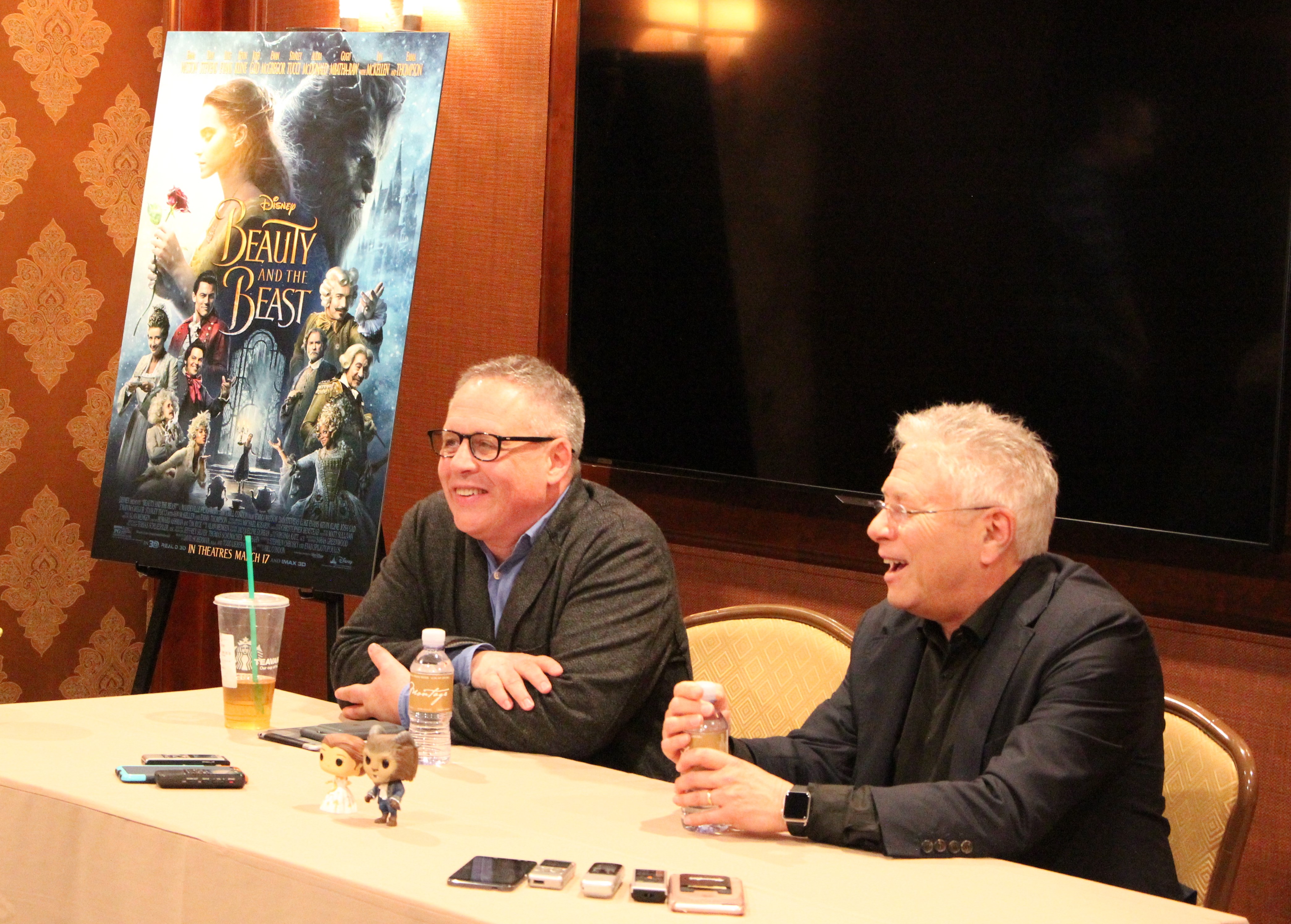
What drew you to this story?
Alan: Disney. Howard Ashman and I were working on the Little Mermaid, it hadn’t been released yet but people were very happy with it, and they said how about Beauty and the Beast. We’re interested in doing that next. I have to say Howard and I actually, we had Aladdin, but Aladdin had to go back to development because we were a bit too edgy. There was more development work to do on that, so Beauty and the Beast then came in and became the next thing we worked on together.
As far as what drew me to it beyond that I mean I gotta go back and credit Howard. When you look at the initial story and how to turn it into an animated musical then, it was a matter of inventing the enchanted objects and a huge ego for Gaston and his posse of nitwits who praise him. So simply because for the structure, we needed to put in production numbers and comedy numbers, and so it was all those brilliant ideas. Howard was so instrumental in that.
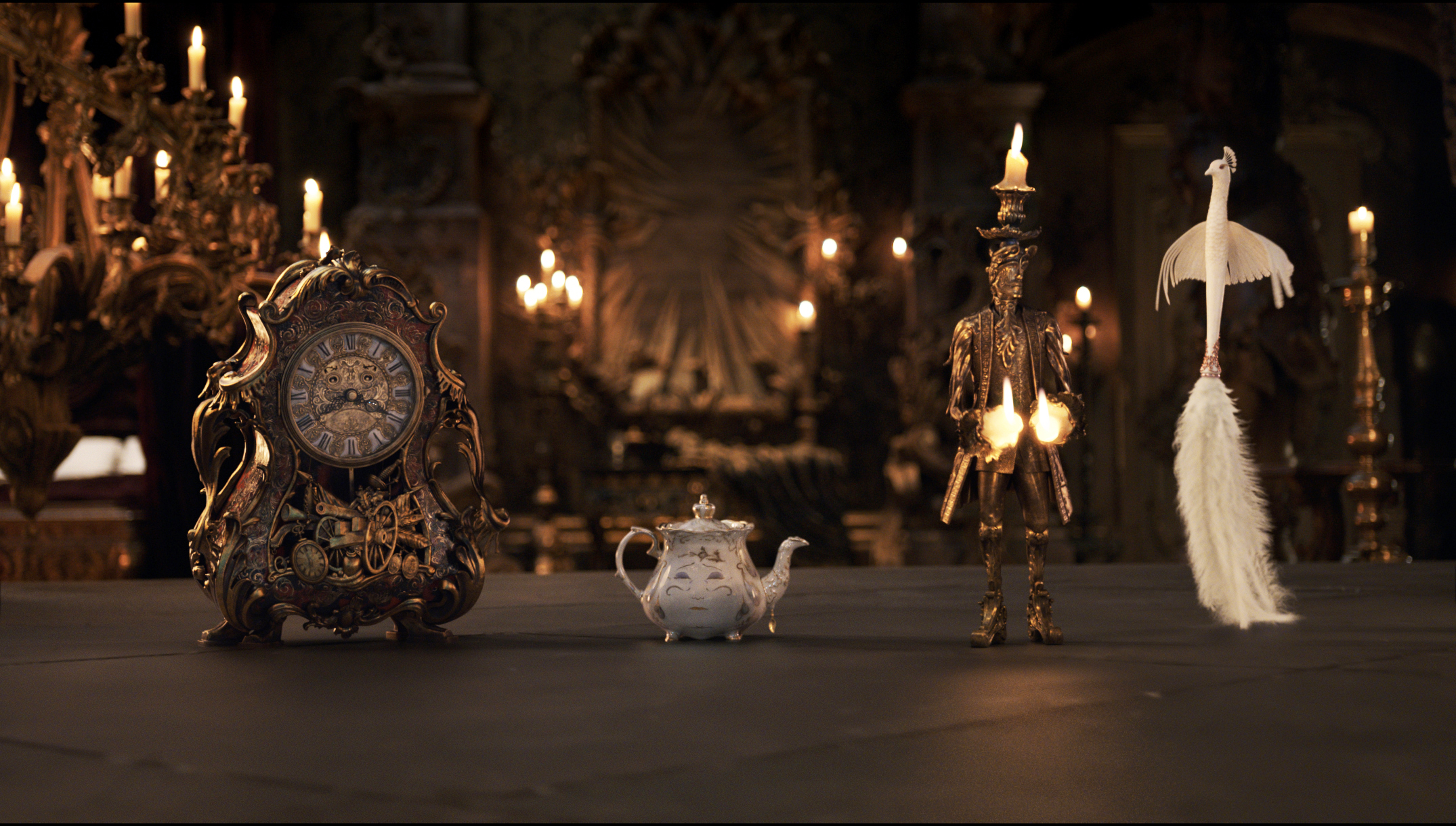
Bill: There’s this movie. This classic, perfect movie that already exists and for me more than anything it was the score, the chance to roll around in that music and to restage it and do a new version of it in a live action format but to especially those songs. It just felt to me that like a once in a lifetime opportunity.
Alan: When I heard that Bill was directing it (turning towards Bill) I didn’t know you. I knew the work you had done, but Richard said “Bill is a major fan of musical theater. He loves it and knows the craft.” So that was huge.
Were the new songs part of the original film?
Alan: They’re brand new. Days in the Sun, before Bill was on as a director, this goes back to about 2008. There was discussions about a movie version of Beauty and went as far as early script and when I was in London working on Sister Act Tim was there, and I said let’s try working on a couple of songs. The Days in the Sun, the genesis of that began back there as sort of a lullaby moment, but once Bill came aboard then that got reworked to be a vehicle of so much backstory, and we’re threading a lot of story to it.
And the other songs I would say they were the song we decide at the beginning. Some moments we followed through on. The original conception of the songs was yes, here they are. The actual execution was two years of here are these songs, black and blue and, we’re gonna reprise it here. So a little bit of How Does a Moment Last Forever into the middle of Days in the Sun. We’re gonna take Days in the Sun theme, and put it at the top as the Aria. You have these threads, and you begin to weave with them. I never pull from a trunk, ever.
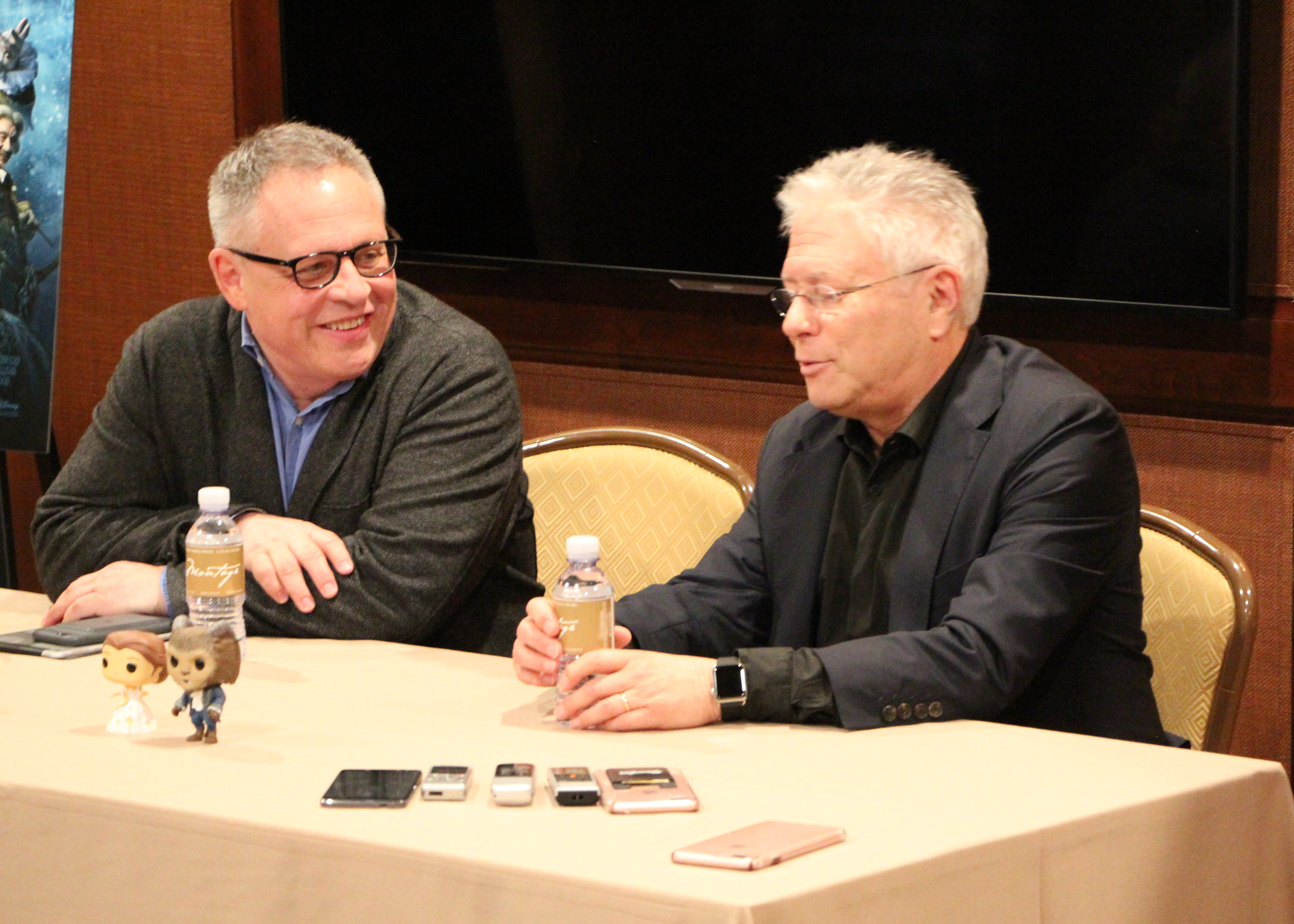
How do you work together throughout the process?
Bill: Well for me I was intimidated at our first meeting; because here I am. I’m talking about the first possible new song, and this is a legendary composer. Also, it’s a property that as we keep saying is perfect on its own, so it’s like okay, gonna tell me we need that, but Alan is a direct opposite. I think Alan as a man of the theater. Somebody who craves the dialogue and the collaboration. I think that’s what it’s about and that became clear very soon. We just started a conversation, it went on for a couple of years, right?
Alan: Yeah, and also we’re both professionals. I mean we both have done a lot of work. We know what’s necessary to collaborate. There are people new to musicals and will try to reinvent the wheel in one direction or another. We both have been through so much, and when you’re a pro, you arrive at the same place because you know what’s important. You know what needs to get done and the necessity of process. I know that for me to go back to Beauty and the Beast on my own, no way I could do it.
I had done it. It’s all about other people coming in and collaborating, and for me, the director is the boss. So it takes such a burden off of me. Now I’m able to be a catalyst which is what I want to be more than somebody driving the ship. Bill had the burden of actually driving the ship, so I don’t know.
Why did you choose to keep all the original music in the live action version?
Bill: Well we didn’t take anything out, that’s the thing. You look at the animated film, and there’s absolutely nothing missing. I would say, I’m going to speak to you for a second, that there was a song that was originally conceived for the animated film, put into reissues of the film and put into the Broadway musical called Human Again, right which is a fantastic song, and I think one of your favorites. That was an early conversation that just felt even in a movie this scale it took two and a half years to do Be Our Guest, and Human Again is even bigger in away and that just became something that we had to sacrifice. And so part of the feelings and what happens in Human Again got translated really into Days in the Sun which has a very different feel.
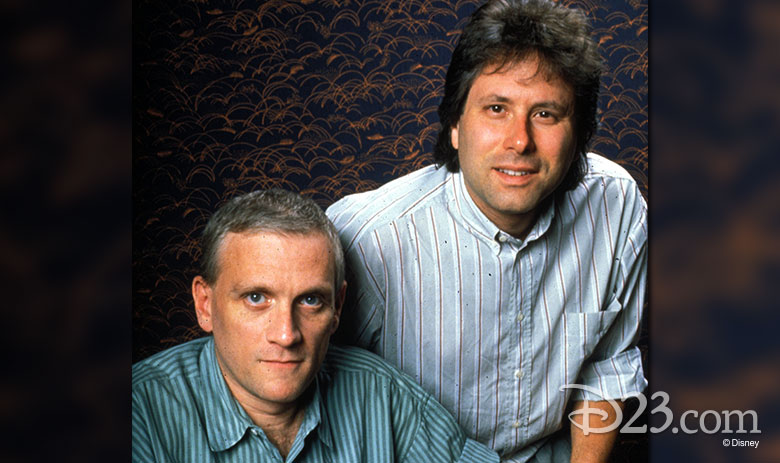
Alan: And Human Again also, I must say because of Howard. It’s a brilliant song, it really is, but it was always problematic, always. It was a nine-minute sequence. It’s going through so many sections and so many edits. Watching the entire coming together of Belle and the Beast. And watching the objects react and going into a scene and coming back to the song. So it was always a challenge to get it in. We ended up cutting it down to about six minutes by the time it got back into the animated movie. Then I think it got cut even a little further for the Broadway show. I think in the future we’ll make a whole music called Human Again and make up for it.
Talk about the challenges of preserving the timeless classic with integrating new things?
Bill: I think again it was always about revealing more. It wasn’t about reinventing, you know. So it was as you start to bring it into the real world, and you start to ask questions that didn’t matter in the animated film, you know. How did Belle and Maurice wind up in this village? What happened to her mother? How did the Prince become such a dissolute figure that he was worthy of being cursed? And, it’s interesting you start asking those questions, and you start to bat around what the possible answers are. Then, you know, you’re making something different, but I think for me I could ever really rely on my own kind of reverence for the original film in knowing when you’re changing something or going too far. You know, I hope never to cross that line.
How did you know that Emma was your Belle?
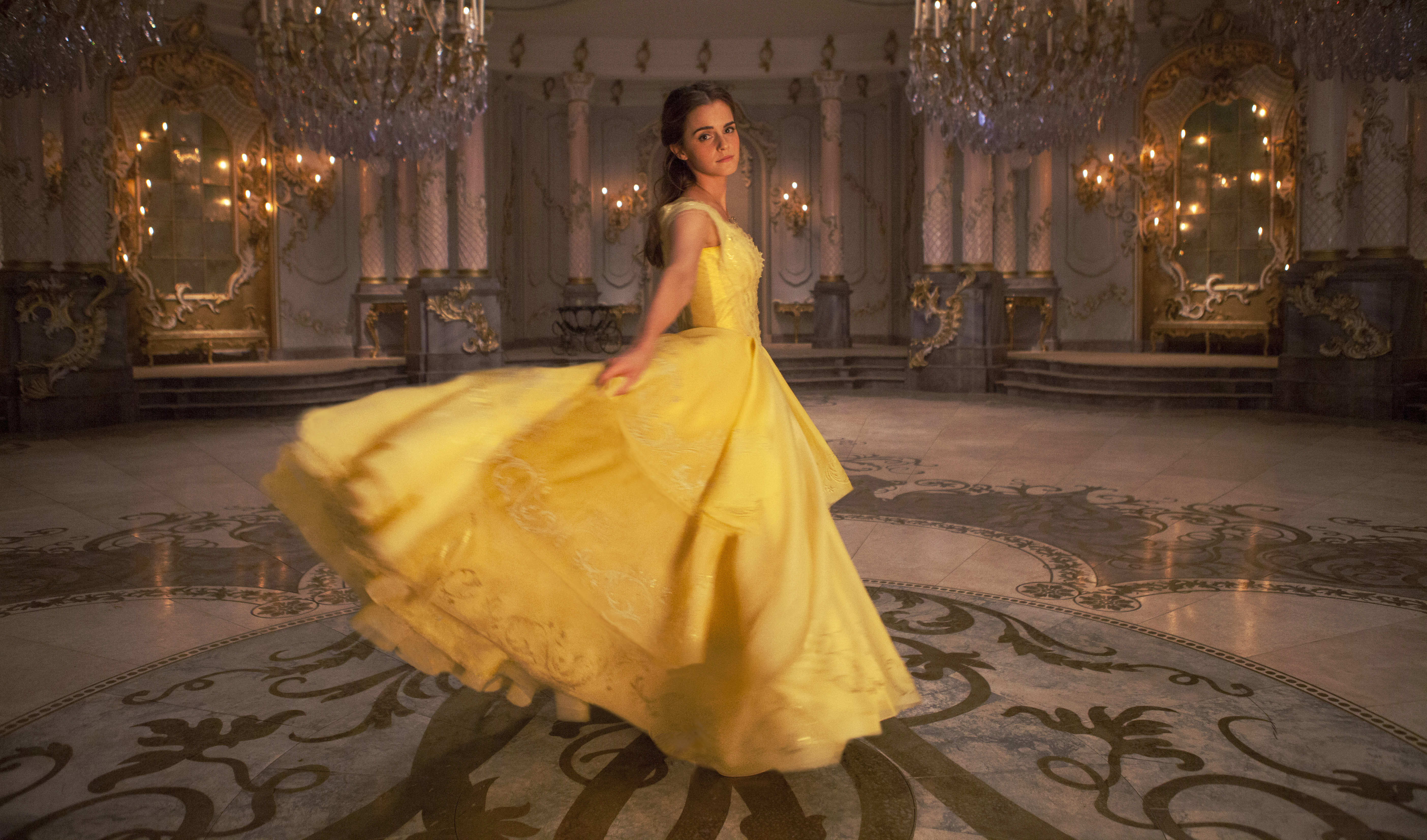
Bill: Well I suspected it right away, just seeing her in Harry Potter. It seemed like that was a perfect kind of connection to a 21st century Belle. Then we met. I was shooting a movie called Mr. Holmes. We met for an hour. And the thing that I loved was how much she loved the original movie and how much she wanted to play the part. She came with a whole pile of books. I was late because I was shooting and she was in the middle of reading. So there she was. Then the only question really became, she’s never sung professionally before. She needed to answer that question for herself too. She wanted to go off.
It was Christmas holiday, and she said, “you go out and get a script together you can send me.” We made a handshake deal, and Emma’s gone go off and make a tape and explore her voice. That was that kind of scary moment. To me, it’s more intimate than taking your clothes when you first hear somebody sing even in a karaoke session. You know, it’s like, oh, my god, that’s the sound that comes out of you? We’ve seen that a few time in movies too. Her voice, it’s so much a continuation of who she is, and how she speaks. There was clearly this kind of sweetness to it, clarity to it, which made it seem like it was going to be a different Belle but a satisfying one.
Alan: She was a little terrified. I mean no bones about it, and we made sure she had her vocal coach. I had Michael Kosarin, my musical director. Bill was actually at the sessions. It’s so helpful because Emma was intimidated by me. I don’t know why. Possibly because of me being the composer. I don’t think she wanted to be that vulnerable in front of me, so I hung in the back of the control room. And we also had a guy named Matt Sullivan, who is a music supervisor, had to give Emma space to just find her voice and work on it. And she did, and Dan was similar. It was new for both of them.
Adopting a musical to film takes balance. You also have the animated movie. How did you manage to incorporate all of those and how is it different from working straight off of a musical without an animated film?
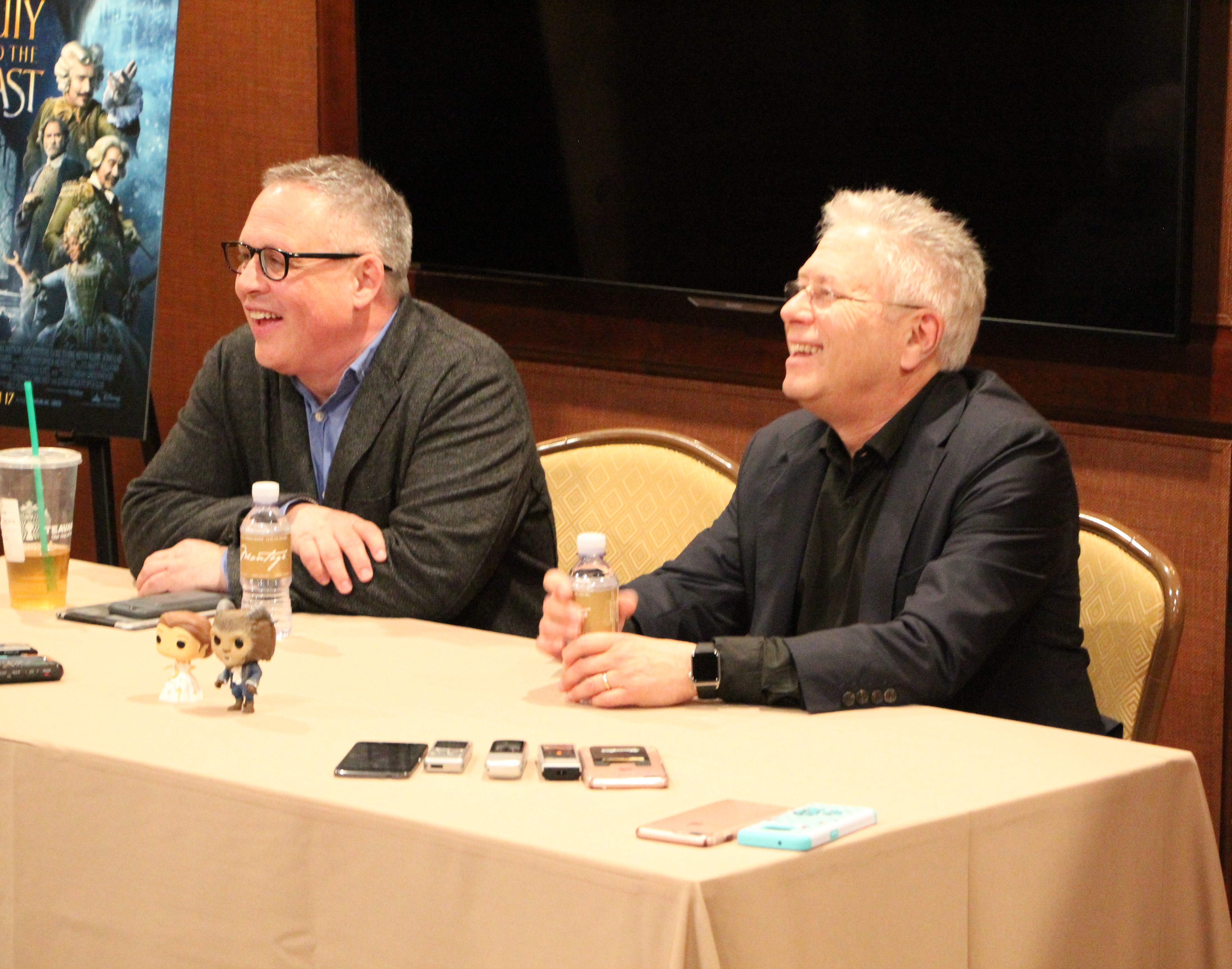
Bill: Well the thing is that it had been conceived as a movie first so there are certain principles like, you know, you can’t just stop a movie for a ballad for three minutes. You know, the story’s gotta be told during a movie number. You can’t do things you can do on stage. So that had already been figured out by Alan and Howard and the creations of the originals, so that was a useful thing to build on. I think for me regarding making it different you take the number of Belle. People look at that and say, well, it’s just the way it was in the animated but, you know, in the course of that we’re telling some other new stories.
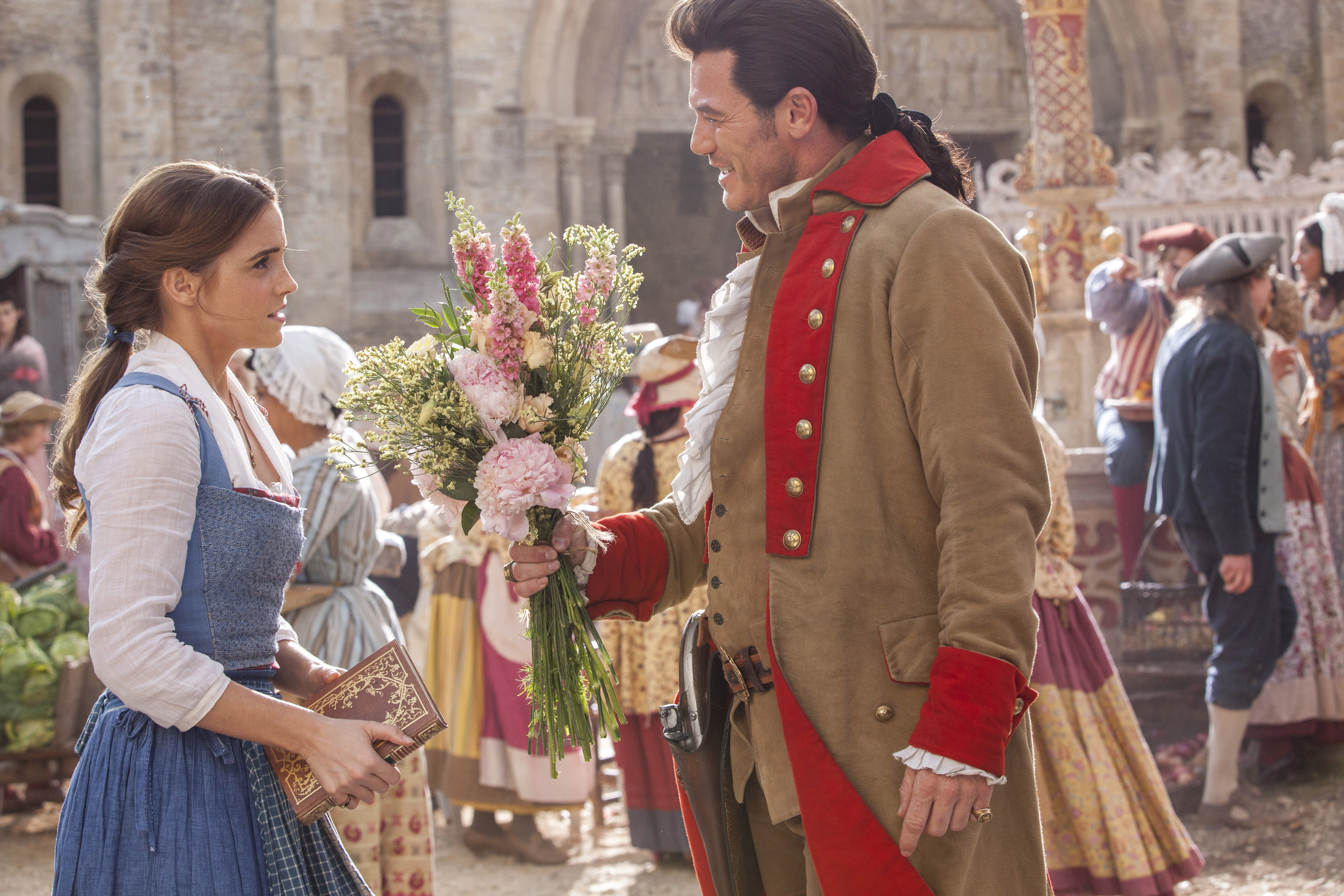
We’re showing the fact that this is a village where only boys go to school or girls do their laundry. Where the village lasses, who are so into Gaston, resent Belle because their mother has always doted more on Belle than her.
Little glimpses of characters who then turn out to play bigger roles. One of them turns out to be Mr. Potts. One of them turns out to be somebody else’s spouse. So it was fun to be able to pack as much story into the songs because, I think you’d agree, that’s when movie songs work.
Alan: And what Bill was doing, you could compare it a high wire act. I mean in a sense every choice he makes is one that is weighed against the next choice he makes. Then also what was there and people’s expectations. I always say we have two brains. We have this brain, and we have this brain (Pointing to his head then his gut.) and a lot of time it’s this brain. The gut brain that goes yeah, my gut tells me I need something there. My gut tells me it doesn’t make sense. That’s something wrong with that. My job, as I often liken what I do to being an architect, we take a story and create structures that can be musicalized. We write these songs, and we create that structure.
I’m not going to live it. The actors are going to live it. The director is the contractor or whatever analogy you want to give it. It can be lived in so many different ways, and I love that. I love when a song or a musical of mine is reconceived as long as you don’t take our numbers and throw a hand grenade to it. A structure is a structure but then it’s great when it gets reinvented, and that’s so well done with this movie.
You’ve been in this career for so long. What would you tell your old self, knowing what you know now?
Alan: What would I tell? Well, it’s just stuff I’ve learned. I mean one of the most important things I learned in my career was it’s not about me. It’s about the characters and the story and don’t ever fall in love with your own material. Let other people fall in love with it if they want. And if you have a note, the best way to address a note is to go ‘okay,’ and just do it because you’re part of a thing that’s larger than you, that’s what’s great about musical theater.
The more that you recognize that you’re part is bigger than you. And you are a part of that and just stay in the process that you can survive. The most tragic thing and you can see this too is people who go I wrote this wonderful music. I don’t know why it wasn’t a hit. I gotta try. I gotta keep working. I don’t understand why they didn’t like it. It’s just tragic. Don’t try it out. Push it aside and go on to something else. Write another musical and another and another. Just move on and don’t get stuck, you know, being the nurse mate to your own material.
Bill: Very well put.
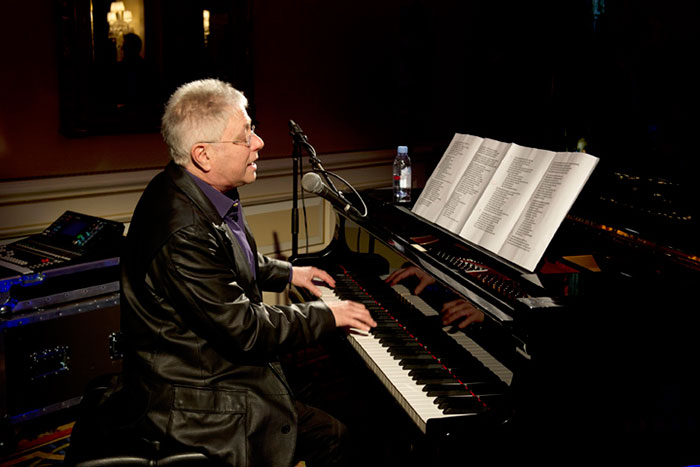
What is it like hearing stories of how your music has impacted others?
Alan: It’s unreal. It’s unreal. Frankly, it gives me more of a sense that we’re all a part of a collective consciousness because we as artists are conduits for emotion. For things, they actually come through us. I mean god knows we shape them and so I just feel very blessed honestly, blessed that I’m a vehicle for that. That’s amazing and wonderful because basically I was a kid who liked to practice the piano, and I was a nervous kid with an ulcer. I just was a dreamer and then somehow I found that writing songs, composing, was where my brain would settle. I just did it and did it and did it and now it has an impact on people like that, and that’s, you know? I’m just living my life, and it’s had that effect and wow.
Beauty and the Beast NOW in Theaters!
Facebook | Twitter | Instagram |Website
I was invited by Disney to the Beauty and the Beast #BeOurGuestEvent to share my experience with my readers. All opinions are my own.
- You Have to Remember – 9/11, 20 Years Later - September 11, 2021
- Creating the Perfect Look with a Maxi Dress - October 20, 2020
- Brand Better Giveaway - October 6, 2020


Leave a Reply